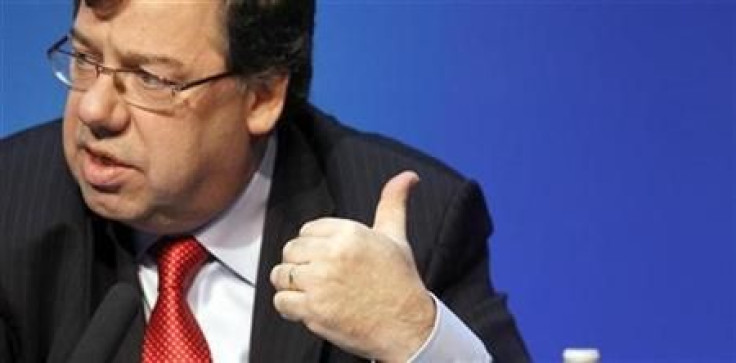Embattled Irish PM refuses to step down

Brian Cowen, the embattled Prime Minister of Ireland, has said he will not resign from his office despite mounting pressure on him to do so as result of the nation’s huge deficit and massive $90-billion bailout package.
As Taoiseach [prime minister] my total focus must remain with discharging my duties to the people, he said. For Fianna Fail [the ruling party], the party is important but the interests of the country are paramount.
Cowen’s refusal to quit places more pressure on his Fianna Fail party -- many members of which have sought his dismissal so that they could find a new leader and stand a better chance of winning the elections to be held in spring. Now, given Cowen’s unpopularity among the Irish electorate, the party faces certain defeat in the polls after having governed the Republic almost continuously since 1987.
Meanwhile, the just-resigned Foreign Minister Micheal Martin, said he plans to challenge Cowen for party leadership.
On Tuesday, party members will convene a vote on whether to keep Cowen as boss, or dump him in favor of Martin.
Turmoil among the ruling party raises doubts about the next government’s ability to pass a budget that will be able to start slashing the budget deficit (an astounding 32 percent of GDP, which ranks as the highest in Europe).
Under terms of the IMF/EU bailout, Ireland is compelled to cut 15-billion euros ($20-billion) from its deficit spending over the next four year.
The Irish parliament has consequently proposed harsh spending reduction measures as well as tax hikes and job cuts.
Cowen, a former finance minister, rose to power in 2008 and his policies are widely blames for bringing Ireland to the brink of financial ruin.
Opposition leaders, who are pushing for Fianna Fail to establish a concrete date for national elections, plan to pursue a “no confidence” motion against Cowen.
The longer [the government] stays in power, the greater the damage that is being done to the economy and to our international reputation,” said Gerry Adams, leader of the Irish nationalist Sinn Fein party. “This government should go.
© Copyright IBTimes 2024. All rights reserved.











